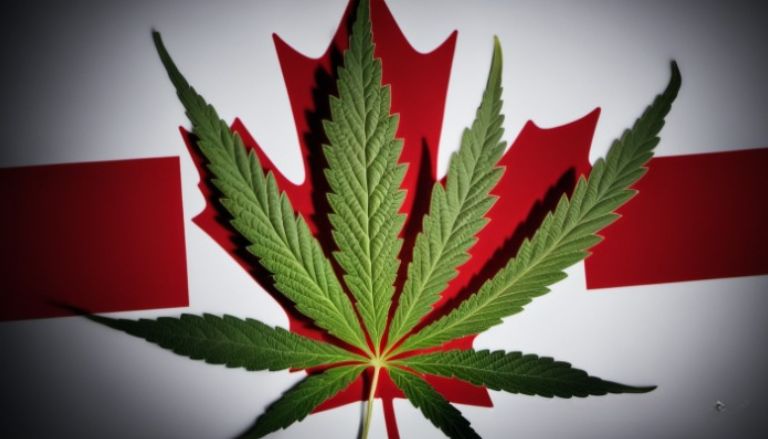Medical Cannabis
Navigating the New Landscape: Legalized Marijuanas Canada
The Dawn of Legal Cannabis
Canada’s journey to legalizing cannabis marked a significant shift in how the country approaches cannabis consumption and possession. With the implementation of the Cannabis Act, the federal government embarked on a new path, prioritizing public health, safety, and a controlled legal cannabis industry. This historic move made Canada one of the first nations to legalize cannabis for non-medical use on a national scale.
Understanding the Cannabis Act
The Cannabis Act serves as the cornerstone of legal cannabis in Canada. This comprehensive legal framework was designed to protect public health, especially young persons, by setting strict rules on the production, distribution, and sale of legal cannabis products. The act also aims to reduce the burden on the criminal justice system caused by cannabis-related offences.
Cannabis Legalization: A Public Health Approach
Cannabis legalization in Canada is deeply rooted in protecting public health. The government, through Health Canada, has implemented measures to ensure that the legal cannabis market operates safely. Public education efforts focus on informing citizens about the potential health risks associated with cannabis use, particularly for youth and those with mental health problems.
The Legal Cannabis Industry: Opportunities and Challenges
The legal cannabis industry in Canada presents both opportunities and challenges. By transitioning from an illegal market to a regulated legal market, the government aims to curb the influence of organized crime. However, the industry faces hurdles, such as ensuring consistent access to cannabis while adhering to provincial or territorial restrictions.
Cannabis Consumption in the New Era
With legalization, consuming cannabis in Canada has taken on new forms. Cannabis edibles, extracts, and oils have joined the array of products available to legal-aged individuals. The minimum age for cannabis use varies across provinces and territories, reflecting a cautious approach to youth cannabis use.
Addressing Impaired Driving
A major concern with cannabis legalization is impaired driving. The government has put in place stringent measures to combat drug-impaired driving, with the Royal Canadian Mounted Police playing a crucial role in enforcement. The emphasis is on ensuring road safety while adapting to the realities of legal cannabis consumption.
The Role of Provinces and Territories
Provinces and territories in Canada have significant autonomy in implementing cannabis legislation. This includes setting personal possession limits, deciding on the legal age for cannabis use, and managing online sales. These regional differences reflect the diverse attitudes and policies towards cannabis across the country.
Legal Cannabis: Impact and Statistics
Since the legalization of cannabis, Statistics Canada has been closely monitoring its impact on society. From tracking cannabis sales to observing trends in recreational and medical cannabis use, these insights are crucial for understanding how legalization is reshaping Canada’s social and economic landscape.
Cannabis and Public Safety
Ensuring public safety is a key aspect of the legal cannabis framework. The legalization aims to protect Canadians from health and safety risks, including those associated with illegal cannabis products. By offering legal alternatives, the government seeks to diminish the reach of illegal drugs in the community.
Legal Cannabis and the Economy
Legalizing cannabis has also had economic implications. The cannabis market has created new business opportunities, from cultivation and selling cannabis to the development of innovative legal cannabis products. These ventures contribute to the economy while operating within the strict legal framework set by the government.
Navigating the Legal Landscape of Cannabis Possession
As Canada embraces legal cannabis, understanding the nuances of cannabis possession becomes crucial. Individuals are now permitted to possess a regulated amount of cannabis, yet exceeding these limits can lead to cannabis-related offences with associated criminal penalties. The laws around possession are designed to balance personal freedom with societal responsibility, ensuring that cannabis use is safe, legal, and responsible.
Cultivating Understanding: The Rise of Home-Grown Cannabis Plants
The legalization has also paved the way for the cultivation of cannabis plants at home. This shift not only offers a personal touch to accessing fresh cannabis but also educates citizens about the plant itself. With the allowance of up to four plants per household, Canadians have the opportunity to engage intimately with the cultivation process. However, it’s important to remain aware of the potential legal intricacies, as rules regarding home cultivation can vary across different provinces and territories.
The Fresh Cannabis Movement
In the heart of the legal cannabis era, the demand for fresh cannabis has surged. Consumers are increasingly seeking high-quality, fresh cannabis that complies with stringent health and safety regulations. This shift towards fresh cannabis signifies a maturing market where quality and safety are paramount. Dispensaries and licensed producers are responding by offering a wider array of fresh cannabis products, ensuring that consumers have access to the best that the industry has to offer.
Addressing Cannabis-Related Offences in the Legal Era
Despite the legalization, cannabis-related offences remain a significant aspect of the legal framework. Activities such as unauthorized selling or possession beyond legal limits can result in criminal penalties. The Canadian government continues to enforce these laws to prevent the misuse of cannabis and to maintain a safe and regulated market. Users must stay informed about the legal boundaries of cannabis use to avoid unintended legal complications.
The Role of Criminal Penalties in Regulation
Criminal penalties in the context of cannabis serve as a deterrent against illegal activities. These penalties are part of the government’s strategy to maintain control over the cannabis market, ensuring that it operates within the bounds of the law. The objective is to prevent the illegal distribution and consumption of cannabis, safeguarding the public from unregulated and potentially harmful products.
Embracing a New Chapter in Cannabis Regulation
Canada’s journey towards legalizing cannabis represents a significant cultural and legal shift. The laws surrounding cannabis possession, the cultivation of cannabis plants, and the consumption of fresh cannabis reflect a progressive approach to cannabis regulation. While navigating this new landscape, Canadians must remain cognizant of the legal limitations and responsibilities that come with legalized cannabis. As the country continues to adapt to this change, the focus remains on fostering a safe, responsible, and well-regulated cannabis industry. Through continued public education and strict enforcement of laws against cannabis-related offences, Canada sets an example for how to integrate cannabis into society in a way that prioritizes public health and safety. The future of cannabis in Canada looks promising, with ongoing developments and adaptations expected as part of this dynamic and evolving sector.
Understanding Cannabis-Related Offences in a Legalized Environment
Even in a legalized framework, cannabis-related offences remain a crucial part of Canada’s cannabis legislation. The government has clearly outlined activities that constitute offences, such as unauthorized distribution or sale of cannabis, and possession over the legal limit. These regulations are in place to deter illegal activity and to ensure that the consumption of cannabis is done responsibly and lawfully. Understanding what constitutes a cannabis-related offence is vital for individuals who choose to consume cannabis, ensuring they remain within the legal boundaries set by the Cannabis Act.
Responsible Consumption in the Age of Legal Cannabis
With the legalization of cannabis, responsible consumption has become a focal point in public discourse. Canadians are encouraged to consume cannabis in a manner similar to how tobacco smoking is regulated, with an emphasis on health and safety. This includes being aware of where cannabis consumption is legally permitted, understanding the effects of consumption on health and mental well-being, and recognizing the importance of not engaging in activities like driving while under the influence. Responsible consumption ensures that individuals enjoy cannabis while minimizing potential risks to themselves and others.
The Rise of Cannabis Oil and Alternative Consumption Methods
Cannabis oil has emerged as a popular product in the legal cannabis market. Its appeal lies in its versatility and the discretion it offers compared to traditional methods of cannabis consumption. Cannabis oil can be used in various ways, including in edibles or as a stand-alone product, providing consumers with numerous options to suit their preferences. The rise in popularity of cannabis oil also reflects a broader trend towards diverse and innovative cannabis products in the legal market, catering to a wide range of consumer needs.
Comparing Cannabis Consumption with Tobacco Smoking
The comparison between cannabis consumption and tobacco smoking is inevitable, especially from a regulatory standpoint. While both activities are legal, they are subject to specific rules and guidelines designed to protect public health. For instance, similar to tobacco smoking, consuming cannabis in public places is restricted, and there are rules regarding exposure to second-hand smoke. This parallel underscores the government’s commitment to ensuring that the legalization of cannabis does not negatively impact the health and well-being of the Canadian public.
Embracing a Balanced Approach to Cannabis
As Canada continues to navigate the complexities of legal cannabis, a balanced approach is paramount. This includes maintaining a clear understanding of what constitutes a cannabis-related offence, promoting responsible ways to consume cannabis, and providing a variety of products like cannabis oil for consumer choice. The comparison with tobacco smoking offers valuable insights into how cannabis can be integrated into society responsibly.
Cannabis legalisation in Canada represents a significant shift in public policy and social norms. It’s a journey that combines the freedom to consume cannabis with the responsibility to do so in a way that respects the law and prioritizes public health. As Canadians continue to adapt to this new landscape, the focus remains on education, regulation, and responsible consumption. The goal is to ensure that the benefits of legalized cannabis are enjoyed by many while minimizing potential risks and maintaining the integrity of Canada’s approach to public health and safety. With ongoing efforts and adaptations, Canada’s legal cannabis landscape is poised to evolve, reflecting a mature and well-regulated approach to this historic change.
Frequently Asked Questions
Q: Are edibles now legal in Canada?
A: Yes, cannabis edibles are legal in Canada, along with other cannabis products like oils and extracts, following the Cannabis Act’s guidelines for production and sale.
Q: What countries have legalized cannabis for recreational use?
A: Countries like Canada, Uruguay, and some states in the USA have legalized cannabis for recreational use, with varying regulations and restrictions.
Q: Can you own a dispensary in Canada?
A: Yes, it is possible to own a dispensary in Canada, but it requires compliance with federal, provincial, or territorial regulations and obtaining the necessary licenses.

